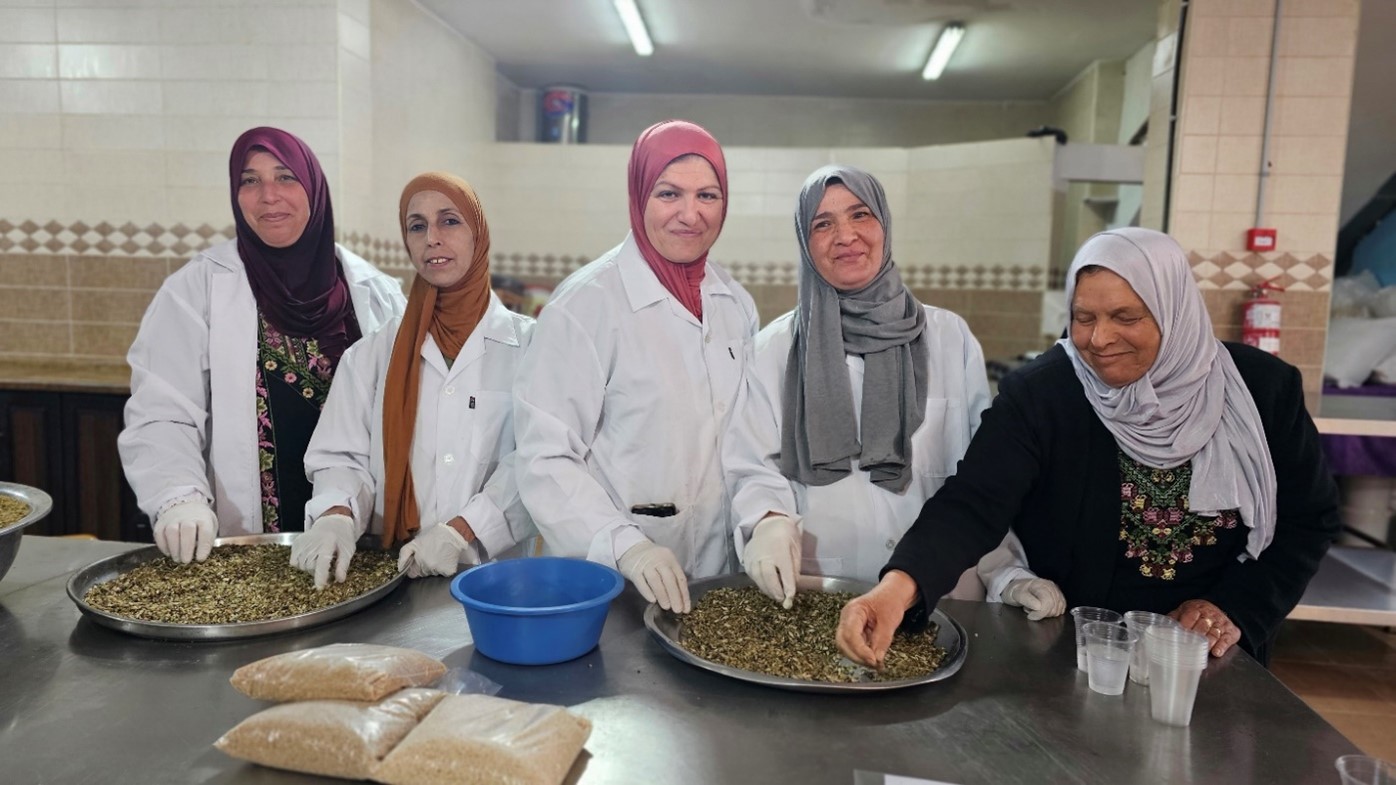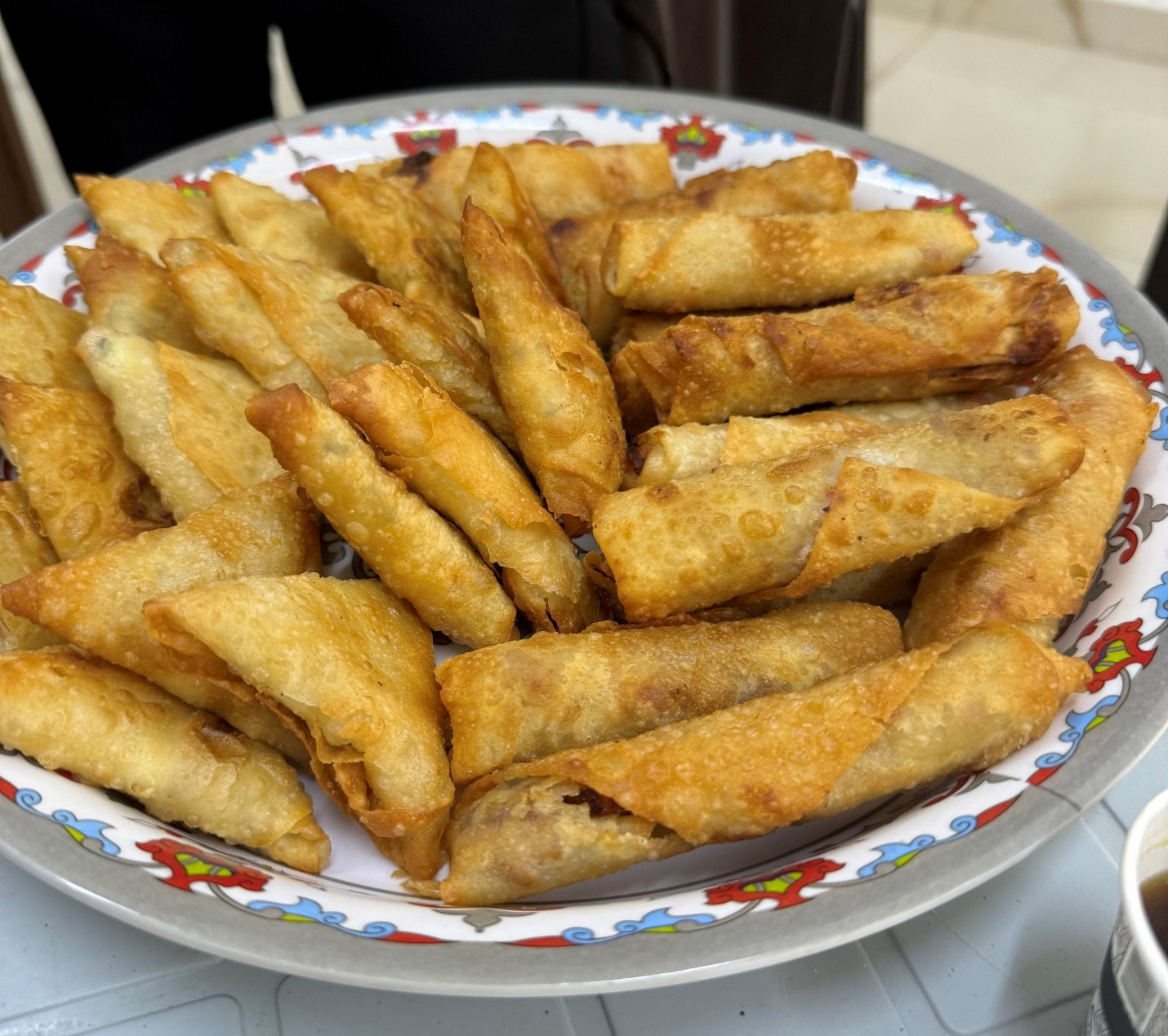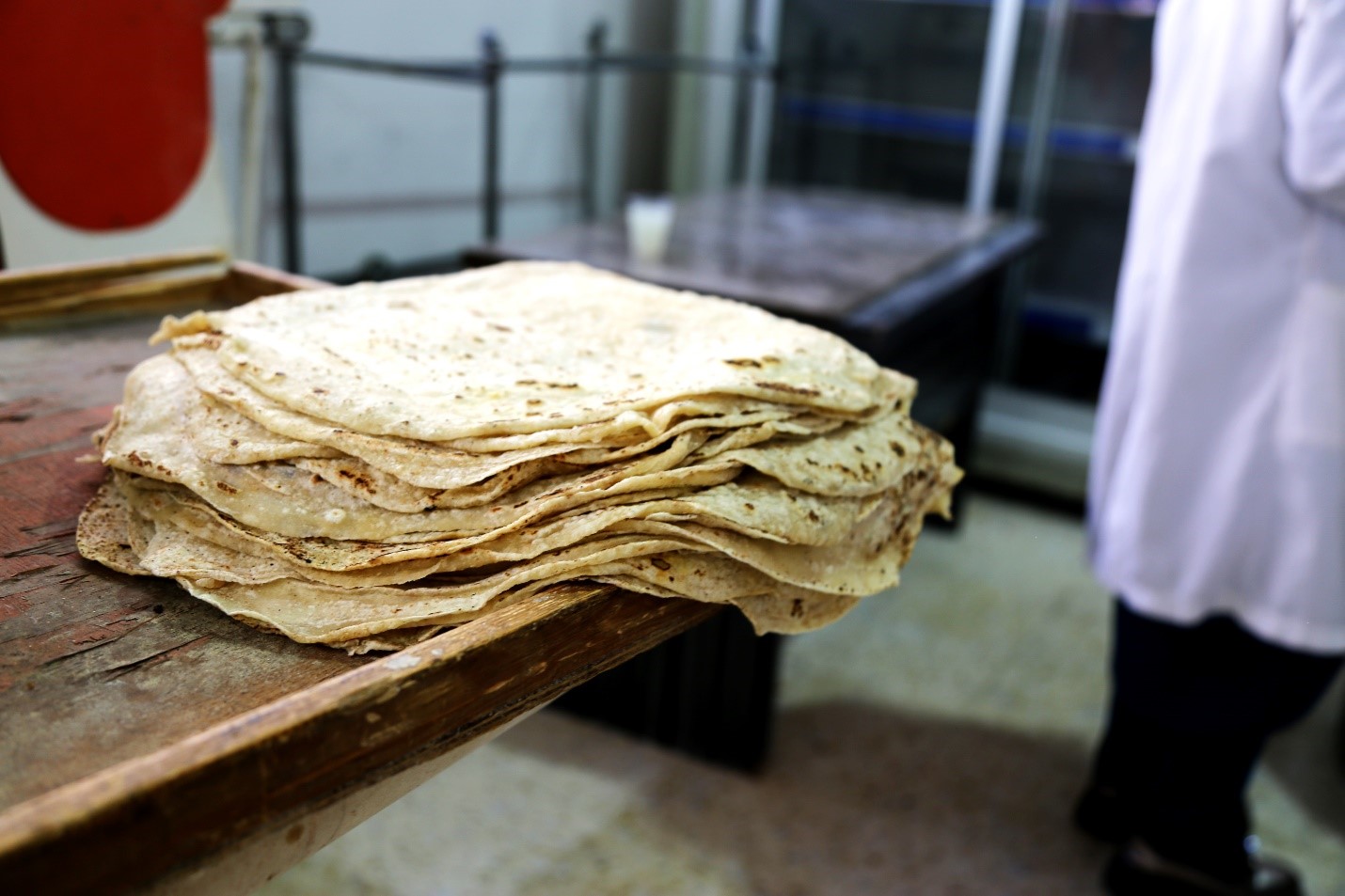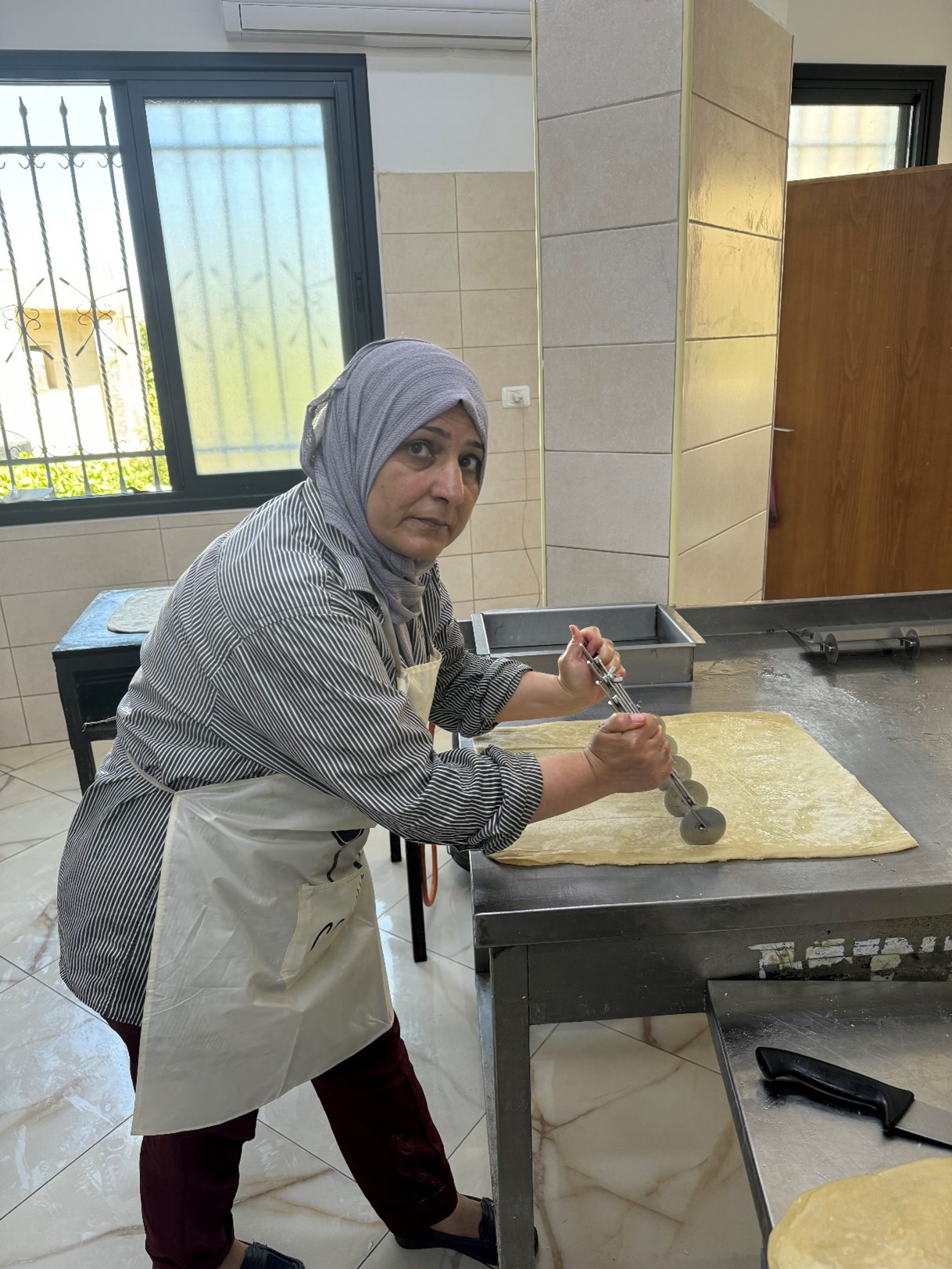
Seeds of Resilience: Empowering Women in Agriculture in Palestine
Stories of transformation and hope amidst rising challenges
Women cleaning fresh Freekeh, Dura Women Cooperative, Dura, West Bank, 2024.
© FAO/Azzam Saleh
14/10/2024
In the sun-drenched hills of Palestine, in towns like Qabalan, Dura and Tufah, a quiet transformation is unfolding despite challenges such as conflict, transportation delays, soaring costs, and climate change, with Palestinians—especially women in farming and herding communities—forging a new path of resilience and empowerment.
Palestine relies heavily on imports for essential goods like food, cereals, and fertilizers. The impact of COVID-19 pandemic that is still being felt in addition to the conflict in Ukraine intensified this dependency, leading to unpredictable price fluctuations and supply chain disruptions. In addition, Palestinians in the Gaza Strip and the West Bank, are severely affected by recent Israeli military operations, are suffering from a worsening humanitarian crisis, increasing food insecurity, socioeconomic instability, and vulnerability.
However, in towns throughout the West Bank, women are coming together to navigate the challenges posed by the Israeli occupation, internal political divisions, recurrent shocks, and macroeconomic imbalances. Women are finding empowerment through agriculture, utilizing sustainable practices and cooperative efforts supported by the Food and Agriculture Organization of the United Nations (FAO).
Qabalan’s breakthrough
“Competition for our [commercial] products was tough," Nadia, the cooperative’s Chair, says.
FAO provided the Qabalan women’s cooperative with financial and technical assistance to enhance their agrifood processing businesses. This support included producing local alternatives to imported foods, such as freekeh and whole grain wheat flour, and offering technical training to improve their value-adding capabilities and market access.
Through exploring the market, the cooperative identified key products and decided to focus on sambousek (samosa), taking advantage of the manufacturing experience of some members. Equipped with a modern “shock” freezing system provided by FAO, they shifted their focus from quantity to quality, transforming their initial struggles with diverse products and logistical hurdles into a dedicated effort to produce high-quality samosa.
"Shock freezing and processing units have ensured food safety and made certifications easier to obtain," said Amera, a cooperative member.
With improved market access, their delectable samosa now reaches tables across the West Bank, including in large cities like Ramallah, Nablus, and Jenin.


Qabalan woman cooperative’s recognized sambousek, Qabalan, West Bank, 2024. -- A selection of local bread produced by the Al Nahda Cooperative Association, Tafuh, West Bank, 2024. © FAO/Bayan Mujahed
Dura’s women
Like in Qabalan, 20 women in Dura, a small town in the south of the West Bank, formed a partnership in 2012, with FAO’s support to produce hand-rolled maftool, a Palestinian staple, similar in texture to couscous. From humble beginnings, this cooperative not only achieved certification but transformed into a thriving economic hub with a two-story headquarters, with a 2 million ILS annual budget. Their success extends beyond maftool to other traditional foods in the Palestinian diet, such as mulukhiyah, and grape-derived products like molasses and jams.
Yet, their impact transcends economic gains. The cooperative has become a beacon of social empowerment, provided stable jobs, and fostered a powerful sense of community among the women.
"We love the cooperative more than our homes," jests cooperative member Ibtisam Nassar, while stirring a large pan of maftool. Challenges they have faced along the way, like family objections and land disputes have only strengthened their resolve, accelerating them to the heart of Palestinian markets with plans for enhanced production and exports. As the sole women's cooperative actively shaping community decisions in Dura, their initiative has not only uplifted its members but sparked a wave of interest among local women seeking economic independence and community engagement.
Baking a better future
Established in 2020, the Al Nahda Cooperative Association in Tafuh, composed of 22 women and one man from villages west of Hebron, has flourished since receiving bakery equipment from the FAO in 2021.
Before FAO identified the Al Nadha Cooperative for support under a project funded by the Government of Canada, its women members worked individually using small-scale, traditional methods. After an FAO-Ministry of Agriculture needs assessment, it became clear they required essential bakery equipment to scale up production and improve the quality and variety of their products.

Qabalan Women’s Cooperative member uses dough roller to produce the town's recognized sambousek. Qabalan, West Bank, 2024. © FAO/Ross Bryan
Now a vibrant community enterprise in a town of 18 000, it produces a local variety of bread and sweets, generating monthly sales of 25 000 NIS with a profit margin of 25 percent. Tafuh’s women’s cooperative prides itself on the quality of its local breads like pita, shrak and taboon, and its sale on the mainstream Palestinian market. The next phase of their plan includes opening a new bakery in a nearby village to further expand their market reach and supply to surrounding areas.
Bashera Ahmad Zreqat, a 49-year-old cooperative member with a family of nine, is enthusiastic to lead this new venture.
“We are enthusiastic about this work and see it as a significant step, especially in the current situation. Working in the bakery has supported my family and positively impacted my personal growth” she says.
Hana Ghareeb, the Cooperative’s 52-year-old chair, with a family of five, adds, “The bakery represents self-sufficiency for women, empowering us to achieve our unique aspirations and fostering self-reliance within the association.”
Their journey underscores resilience, empowerment, and the transformative impact of collective efforts in agriculture and community building. Through the FAO’s "Support Economic Growth through Optimized Agricultural Value Chains in the West Bank" project, funded by the Government of Canada, these women are poised to achieve a Better life – it aims to enhance incomes and strengthen Palestinian land ownership.
FAO's support for women under this project is one aspect of its broader assistance for people in the West Bank. In addition to the other interventions implemented under this project, through which Palestinian farmers affected by recurrent challenges and shocks receive support through technical assistance, conditional cash for intercropping with olive orchards, international promotion of Palestinian olive oil, and emergency distribution of drought-tolerant fodder seeds. These efforts aim to strengthen farmers' resilience and sustain agriculture-based livelihoods, including those of Bedouin communities.
